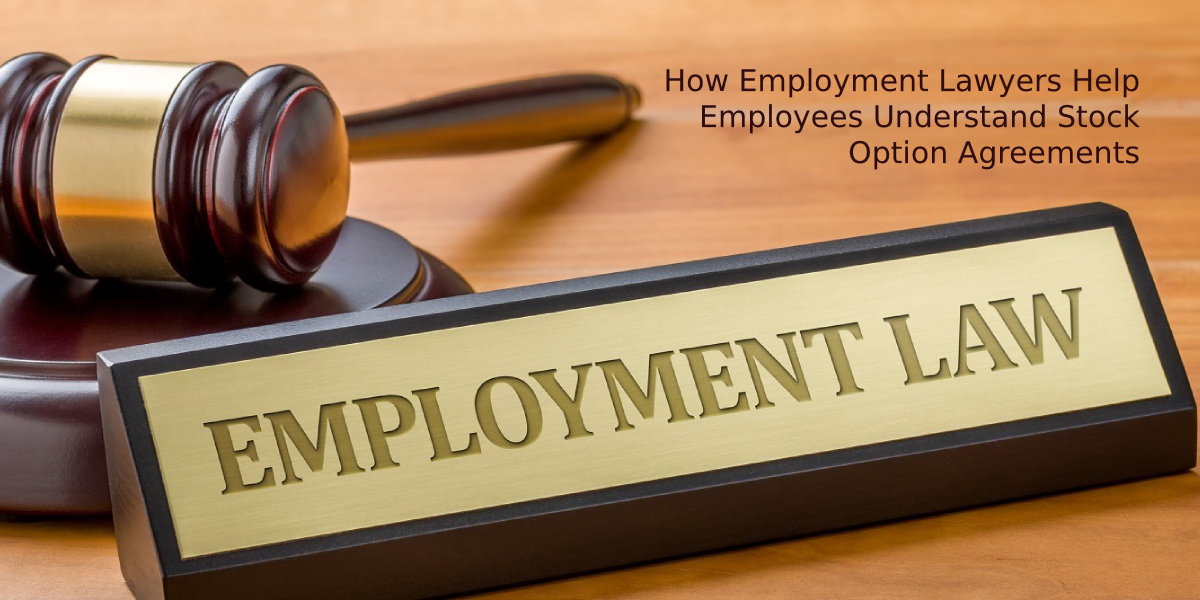Law
What is a Deputy District Attorney? Key Responsibilities and Legal Authority

The criminal justice system is a complex structure that ensures law and order, prosecutes offenders, and protects the rights of individuals. One of the crucial figures in this system is the Deputy District Attorney (DDA). But what is a Deputy District Attorney? A Deputy District Attorney serves as a prosecuting attorney in criminal cases, representing the government in court proceedings. They work under the supervision of the District Attorney (DA) and play a pivotal role in ensuring justice is served.
From filing charges to negotiating plea deals and presenting cases in court, a Deputy District Attorney has a significant impact on the legal system. Their responsibilities extend beyond courtroom trials, as they also provide legal advice to law enforcement agencies, interact with victims and witnesses, and uphold the integrity of the criminal justice process. This blog explores the key responsibilities, legal authority, and challenges faced by Deputy District Attorneys in their quest to enforce the law effectively.
What is a Deputy District Attorney?
A Deputy District Attorney (DDA) is a public prosecutor who works for the government to prosecute criminal cases on behalf of the state. They are responsible for handling a wide range of cases, from misdemeanors to felonies, and are integral to the criminal justice process. The role of a DDA is multifaceted, requiring extensive knowledge of criminal law, courtroom procedures, and legal strategies.
In the United States, each county typically has an elected District Attorney (DA) who oversees the prosecution of criminal cases. The DA appoints Deputy District Attorneys to assist with the caseload and ensure that justice is served efficiently. These legal professionals are responsible for investigating cases, presenting evidence, and arguing before judges and juries.
Key Responsibilities of a Deputy District Attorney
The duties of a Deputy District Attorney vary depending on jurisdiction, caseload, and the severity of crimes they prosecute. However, some core responsibilities remain consistent across different regions. Below are the primary duties of a DDA:
1. Evaluating Cases and Filing Charges
One of the first tasks of a Deputy District Attorney is to review evidence and determine whether criminal charges should be filed. This process involves:
- Examining police reports
- Analyzing forensic evidence
- Interviewing witnesses and victims
- Consulting with law enforcement officers
DDAs must assess whether there is sufficient evidence to prove a defendant’s guilt beyond a reasonable doubt. If the evidence is strong enough, they formally file charges against the accused.
2. Representing the State in Court
A crucial aspect of a DDA’s job is representing the government in court proceedings. This includes:
- Presenting opening and closing statements
- Examining and cross-examining witnesses
- Arguing motions and objections
- Submitting legal documents and evidence
They must build strong cases, ensuring that justice is upheld while adhering to the principles of due process and fairness.
3. Negotiating Plea Bargains
Not all cases go to trial. Many are resolved through plea bargains, where the defendant agrees to plead guilty in exchange for a lesser charge or reduced sentence. A DDA negotiates these agreements to:
- Save time and court resources
- Ensure appropriate punishment for the crime
- Provide closure for victims and their families
4. Advising Law Enforcement
Deputy District Attorneys frequently collaborate with law enforcement agencies, providing legal guidance on criminal investigations. This includes advising on:
- Proper procedures for gathering evidence
- Legal standards for search and seizure
- Strategies for building strong cases
5. Working with Victims and Witnesses
A DDA serves as a liaison between victims, witnesses, and the justice system. They ensure that victims understand their rights, prepare witnesses for testimony, and offer support throughout legal proceedings. Their role is crucial in helping individuals navigate the often-intimidating legal process.
6. Handling Appeals and Post-Conviction Matters
After a trial concludes, a DDA may be involved in appeals and post-conviction proceedings. This includes:
- Responding to appeals filed by defense attorneys
- Presenting arguments before appellate courts
- Seeking justice in cases of wrongful conviction
Legal Authority of a Deputy District Attorney
A Deputy District Attorney wields significant legal authority within the criminal justice system. Their powers include:
1. Discretion to File or Dismiss Charges
A DDA has the authority to decide whether criminal charges should be filed, amended, or dismissed. This discretion is based on:
- Strength of evidence
- Legal precedents
- Public interest considerations
2. Issuing Subpoenas
Deputy District Attorneys can issue subpoenas to compel witnesses to testify or produce evidence in court. This power ensures that crucial evidence is presented in legal proceedings.
3. Requesting Arrest Warrants
If law enforcement needs judicial approval for an arrest, a DDA may request an arrest warrant from a judge, presenting probable cause to justify the action.
4. Recommending Sentencing
During sentencing hearings, a DDA can recommend penalties for convicted defendants, influencing the severity of their punishment based on legal guidelines and case circumstances.
Challenges Faced by Deputy District Attorneys
The role of a Deputy District Attorney is demanding, with numerous challenges that can make the job stressful and complex. Some of the most common challenges include:
1. High Caseloads
DDAs often handle numerous cases simultaneously, requiring strong time management skills and the ability to prioritize urgent matters.
2. Emotional Toll
Prosecuting serious crimes, such as homicide and sexual assault, can be emotionally taxing. DDAs must balance professionalism with empathy for victims.
3. Ethical Dilemmas
Deputy District Attorneys must ensure fairness in their prosecutions while advocating for justice. Ethical dilemmas arise when deciding whether to pursue charges, negotiate plea deals, or recommend sentences.
4. Public Scrutiny
As public officials, DDAs face scrutiny from the media, advocacy groups, and the public. Their decisions can have significant societal consequences, requiring them to act with integrity and transparency.
Conclusion
A Deputy District Attorney plays an indispensable role in the criminal justice system, ensuring that laws are upheld and justice is served. But what is a Deputy District Attorney beyond their legal responsibilities? They are advocates for victims, guardians of public safety, and key figures in maintaining the integrity of the justice process.
With extensive responsibilities ranging from evaluating cases to prosecuting criminals, a DDA’s job is both challenging and rewarding. Their legal authority grants them the power to shape criminal justice outcomes, influence sentencing, and work towards a safer society. Despite the hurdles they face, their commitment to fairness, justice, and the rule of law makes them essential pillars of the legal system.
Understanding the role of a Deputy District Attorney provides insight into how the criminal justice system operates and highlights the crucial function they serve in maintaining law and order. Whether in the courtroom or behind the scenes, DDAs work tirelessly to ensure that justice prevails for all.
FAQs
1. What is a Deputy District Attorney’s main role?
A Deputy District Attorney prosecutes criminal cases on behalf of the state, representing the government in court and ensuring that justice is served.
2. How does a Deputy District Attorney decide to file charges?
A DDA reviews evidence, consults with law enforcement, and determines whether there is enough proof to support criminal charges.
3. What qualifications are required to become a Deputy District Attorney?
A law degree (JD), passing the bar exam, and gaining experience in criminal law are typically required.
4. Can a Deputy District Attorney drop charges?
Yes, a DDA has the discretion to dismiss charges if there is insufficient evidence or if prosecution is not in the public interest.
5. How does a Deputy District Attorney differ from a Public Defender?
While a DDA prosecutes cases on behalf of the state, a Public Defender represents defendants who cannot afford private legal representation.
Law
Litigation Presentation Expertise: Winning in Court

Litigation is both a work of art and a chore in advocating the law. How a case comes out depends very much on strong litigation presentation to involve judges as well as jurors. Present court victory calls for more than defending the law strenuously; lawyers are now commanded to apply convincing communication methods, technology, and also images in order to produce an impact.
Know Your Audience
Whether you are presenting a trust litigation lawsuit, defending a crime suspect or dealing with a severe mass tort, learning about the decision-makers in your case—a judge, jury, or arbitration panel is very important. Judges care about legal precedent, statutes, and procedural regulations, while juries care about story, simplicity, and emotional connection. Presenting your case in a way that matches the audience will help you achieves maximum effectiveness.
Also Read: A Complete Guide to Handling Accidents Involving 18-Wheelers
Clarity and Conciseness
Jargon and complex explanations will alienate your audience. An effective litigation presentation distills the essential facts into clear, direct, and consequential arguments. Clarity without compromising accuracy means your main messages will be recalled and heard.
Effective Storytelling
The human instinct for storytelling produces essential tools for attorneys to use in their court proceedings. Judges and jurors find it simpler to connect with your cause when your argument follows the structure of an engrossing story with a defined beginning, middle, and concluding end. A persuasive legal narrative emerges through the use of concrete facts, reasonable sequence, and sensory detail.
Also Read: How Employment Lawyers Help Employees Understand Stock Option Agreements
Mastering Visual Aids
Visuals such as charts, timelines, diagrams, and videos can accompany key points and clarify complex information. Technology such as PowerPoint presentations, trial software, and electronic exhibits facilitate the easy consumption of legal arguments. But graphics should illuminate, not detract—avoid overwhelming with too much detail or too many slides.
Mastering Non-Verbal Communication
Body language, tone of voice, and eye contact all play an immense role in perception. Proper posture, expert gestures, and reflective pacing can establish credibility and authority. Vocal inflections and strategic pauses can be trained to keep the audience engaged and emphasize the crucial points.
Also Read: 10 Essential Suggestions Before You File For Divorce In Huntsville
Anticipate Counterarguments
A persuasive litigation presentation not only aims to prove your point but also prepares for the opposition’s arguments. Preparing for potential counterarguments and confronting them head-on shows good preparation and credibility. Acknowledging weaknesses and presenting them in a positive light can defuse the attack of opposing counsel.
Make Mock Presentations
Practicing your litigation presentation in front of a mock audience, e.g., colleagues or legal advisors, can be helpful to gain feedback. Mock trials enable the honing of delivery, the pinpointing of weaknesses, and the checking of the argument’s clarity. Practicing in realistic settings increases confidence and flexibility.
Also Read: Ultimate Guide to The Benefits of Alternative Dispute Resolution in Commercial Cases
Leveraging Courtroom Technology
Contemporary litigation is supported by state-of-the-art courtroom technology. Electronic filing of documents, virtual witness depositions, and live transcription services streamline the process and save time. Awareness of what equipment is available in the courtroom allows everything to be presented smoothly and professionally.
Professionalism and Ethics
The ability to win over court juries depends entirely upon credibility during a case. Exaggeration and misrepresentation together with hostile behavior will break down the confidence level. Be ethical and professional to earn respect from the bench and jury while assembling evidence for the case as a whole.
Also Read: Cohabitation Agreements in Andover: Protection for Unmarried Partners
The strategic practice of litigation presentation requires lawyers to master legal expertise together with presentation techniques and adaptable story-telling abilities. The difference between winning or losing can be determined by the quality of a lawyer’s court presentation skills thus making preparation vital. The established methods help attorneys create effective presentations which boost their court success probabilities.
Law
A Complete Guide to Handling Accidents Involving 18-Wheelers

When someone is in an accident with a semi-truck, it is possible for the situation to be severe. They may suffer from significant injuries, as well as other losses like the loss of their vehicle. It is important for anyone who is in an accident with an 18-wheeler to make sure they know how to handle the next steps, which is easier to do with the help of an attorney.
Get Fast Medical Attention
It is crucial for victims to get fast medical attention after accidents involving 18-wheelers. These types of accidents typically lead to severe or permanent injuries and death, so prompt medical care should be the first concern. After the person has started receiving care, when they are able to, they should contact a lawyer for help. The lawyer can take over the legal aspects of the case right away, allowing the victim to focus on their recovery.
Also Read: How Employment Lawyers Help Employees Understand Stock Option Agreements
Gather Evidence of How the Accident Happened
If possible, the victim will want to gather evidence of how the accident happened at the scene of the accident. If they are severely injured and unable to do this, they should prioritize seeking medical care. Along with photos of the scene, there may be footage from nearby surveillance cameras, dash cam footage, witnesses that can provide information, and a lot more. A lawyer can look into obtaining the evidence needed to show how the accident occurred.
Determine the Amount of Compensation Needed
The victim is entitled to compensation for their injuries, though they need to prove who was liable for the accident. The compensation should cover any bills that have that were a result of the accident. Since semi-truck accidents can lead to severe injuries, this can include medical bills, costs of ongoing medical care, future medical needs, lost wages, loss of income, damage to their vehicle, and a lot more. It is important to let a lawyer handle this, as the victim will want to make sure they get enough compensation to cover as much as possible.
Also Read: Ultimate Guide to The Benefits of Alternative Dispute Resolution in Commercial Cases
Figure Out Who is Liable for the Accident
The next step is to determine who is liable for the accident. While it could be the driver, there are situations where someone else can be held liable with or instead of the driver. For instance, there are federal regulations in place that limit the number of hours a truck driver can be on the road before they must take a break or sleep. If the driver was pushed to drive past these limits, the business owner or other responsible party may be liable instead of the driver. It is important for a lawyer to look into what happened and how to make sure they request compensation from the right party, as making a mistake during this step could mean the case is dismissed.
If you’ve been the victim of an 18-wheeler accident, it is a good idea to speak with a lawyer right away. They can help to make sure you receive the compensation needed to financially recover from the accident and they can handle all of the legal tasks for you while you recover from the injuries. Be sure to schedule a consultation with a personal injury lawyer to learn more about how they can help.
Law
How Employment Lawyers Help Employees Understand Stock Option Agreements

You should have a stock options agreement if you consider investing in stock options. A lawyer like those at Strianese Huckert LLP can draft this agreement for you. They will help outline the terms and conditions of your investment. This can help avoid potential disputes and misunderstandings in the future.
A Stock Options Agreement Lawyer: What Is It?
A stock options lawyer is an attorney with experience drafting stock option agreements. This expert specializes in creating and negotiating stock option plans for staff members. The terms, conditions, and restrictions of buying stock options are outlined in these written contracts. Their primary goals are to safeguard the worker and avoid misunderstandings. One particular type of employee pay is stock options.
What Purposes Do Attorneys for Stock Options Agreements?
A stock options agreement lawyer helps draft and negotiate stock option purchase agreements. These agreements outline the terms and conditions of investing in stock options, specify how and when stock options can be bought or exercised, and may help avert disagreements between parties.
It is crucial to have a stock options agreement for the following reasons:
- Avoid miscommunications: A formal document can help avoid miscommunications. For instance, employees should be informed of the dangers associated with stock option investing. This agreement can help them learn more about these dangers.
- Describe the investment’s conditions: The investment conditions might be clarified using a stock options agreement. Conflicts may be avoided in this way.
- Offer defense: Agreements about stock options shield both parties. This contract may protect the interests of both the employee and the business, giving the stock options.
Anyone considering investing in stock options must have a stock options agreement. Protecting your rights as an employee and investor and avoiding misconceptions are two benefits of hiring a lawyer for a stock options arrangement.
If you plan to exercise your stock options, have a stock options agreement lawyer review the agreement before completing your purchase. This ensures no misunderstanding regarding what was intended or given because the terms and conditions are stated clearly upfront.
How Much Does a Stock Options Agreement Attorney Cost?
The cost of stock options agreements varies based on the agreement’s complexity and the lawyer’s expertise. For this type of labor, most attorneys bill by the hour. As such, your budget needs to be in the range of $100 to $300. This estimate can fluctuate depending on specific details of the agreement. Additionally, the lawyer’s experience and reputation might affect the final cost.
There are instances when employing a lawyer for a stock options agreement is unnecessary, saving you money. For instance, if your agreement is straightforward, you can locate a lawyer who will design one for you for a fixed cost if you need one for stock options. A contingency fee arrangement can be advantageous if you have limited funds.
Ask for a project cost estimate before engaging a lawyer for a stock options agreement. This helps you create a project budget and gives you a decent idea of what to expect.
Can I Get a Stock Options Agreement Without a Lawyer?
Whether you’re considering NQSOs or ISOs, it’s crucial to consult a stock options lawyer to fully comprehend the advantages and ramifications of any stock options granted as part of your job compensation package before deciding whether to take them.
Conclusion
The stock options agreement outlines the precise rights and responsibilities of both you and your employer regarding the options and can also be drafted by an attorney. This ensures your interests are fully protected, and all legal aspects are thoroughly addressed.
















